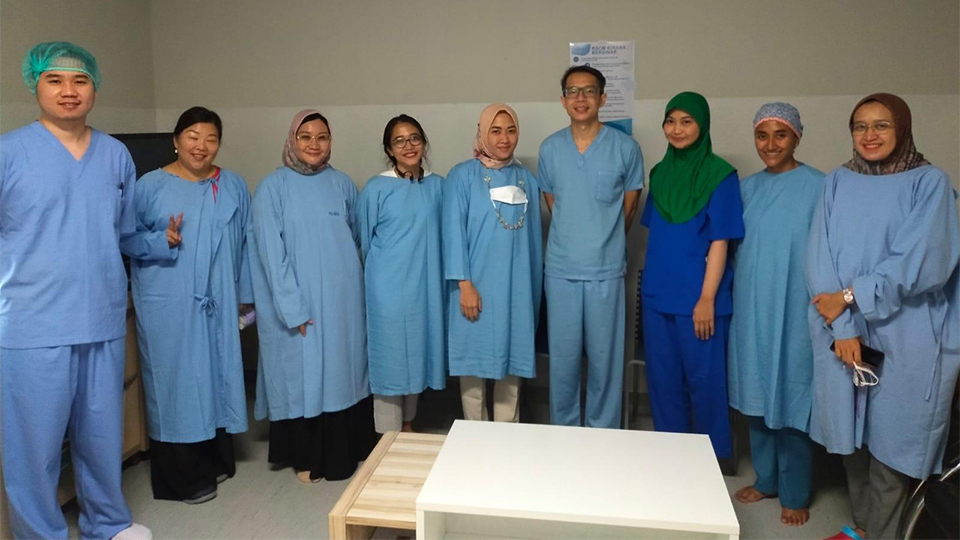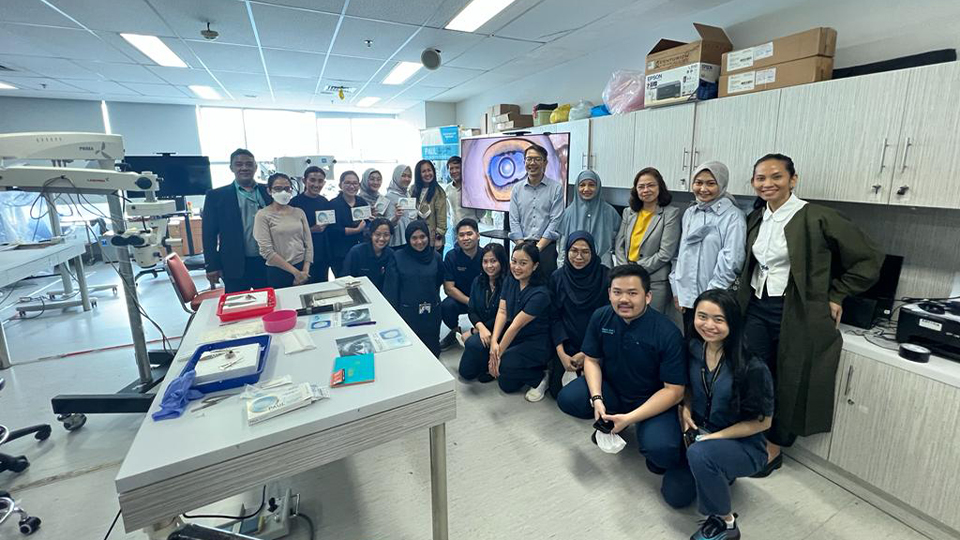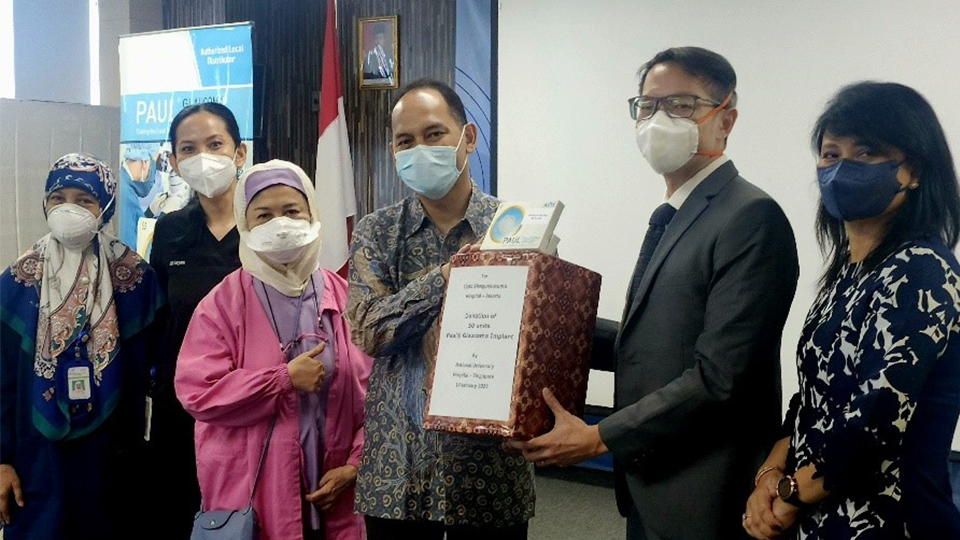NUS Medicine and Cipto Mangunkusumo National Central Public Hospital see eye to eye with ophthalmology collaboration
Published: 17 Jan 2023

Associate Professor Victor Koh (fourth from right) with the local team at Cipto Mangunkusumo National Central Public Hospital in Cipto Eye Centre, Jakarta, where the live surgeries and wetlab teaching sessions were held.
Associate Professor Victor Koh from the Department of Ophthalmology at the Yong Loo Lin School of Medicine, National University of Singapore (NUS Medicine), was invited to visit Cipto Mangunkusumo National Central Public Hospital in Jakarta between 13 and 14 January 2023, as part of a collaborative education programme between the hospital and NUS Medicine.

Assoc Prof Victor Koh observing glaucoma surgery conducted by the team of local surgeons.
Over the two days, Assoc Prof Koh was up to his neck interacting with the local glaucoma surgeons; discussed surgical techniques; observed glaucoma surgeries; and conducted a glaucoma teaching wetlab session involving the PAUL® Glaucoma Implant (PGI).
The patients who could benefit from the PGI surgery have refractory glaucoma. Glaucoma is a condition where the intraocular pressure, or eye fluid pressure, is high—this may eventually lead to irreversible vision loss. The PGI surgery provides glaucoma doctors with an option that is effective and safe in lowering intraocular pressure even in eyes which have failed previous glaucoma surgeries.

Assoc Prof Victor Koh (right) having a post-surgery discussion with doctors and trainee doctors from other hospitals in Jakarta.

Assoc Prof Victor Koh and the Indonesian surgical team posing for a photo after a wet lab teaching session, conducted by Assoc Prof Victor Koh.
Assoc Prof Victor Koh also conducted wetlab teaching sessions to train glaucoma surgeons in Indonesia on the technique of performing a PGI surgery.

Assoc Prof Victor Koh (second from right) presenting the gift of 50 units of PAUL® Glaucoma Implant to Cipto Mangunkusumo National Central Public Hospital.
With the PGI making impactful strides in Ophthalmology, Assoc Prof Victor Koh and the team mooted the idea of donating the PGI to Cipto Mangunkusumo National Central Public Hospital, Indonesia. This was supported by Dr. Astrianda Suryono, a former National University Hospital glaucoma fellow, who is now a glaucoma surgeon in the Cipto Mangunkusumo Hospital.
Invented by Prof Paul Chew who holds administrative and clinical appointments at the Department of Ophthalmology at NUS Medicine and National University Hospital, the PGI is a glaucoma drainage device which regulates intraocular pressure and prevents further disease progression that leads to blindness. The PGI has been successfully commercialised and used by leading hospitals and established eye centres in more than 30 countries, such as the United Kingdom, Germany, Finland, Saudi Arabia, South Africa, New Zealand and within the National University Hospital, and is undergoing process approval to be used in another 15 countries.
Regarding this cross-institution collaboration, Dr Suryono said, “We are grateful for this gift of 50 units of the PAUL® Glaucoma Implant from the Yong Loo Lin School of Medicine. Hopefully, with this implant, we have more options for our refractory glaucoma patients because the glaucoma cases that come to our centre are often complicated and are already at late stages.”
“Patients with glaucoma very often have very little options to regain their sight, and it is an extremely daunting prospect for many. With this first step of pledging 50 units of PGI to the hospital, we hope to help as many patients with glaucoma who come from disadvantaged backgrounds regain their sight and independence, and strengthen the research and teaching collaboration between NUS Medicine and Cipto Mangunkusumo National Central Public Hospital as we look to expand the scope of such meaningful endeavours,” added Assoc Prof Koh.
With the support of medical technology start-up company, Advanced Ophthalmic Innovations Pte Ltd (AOI), the team hopes that this first step of donating the PGI to benefit more disadvantaged populations will open more doors to further collaborations with other hospitals and institutes of higher learning.





